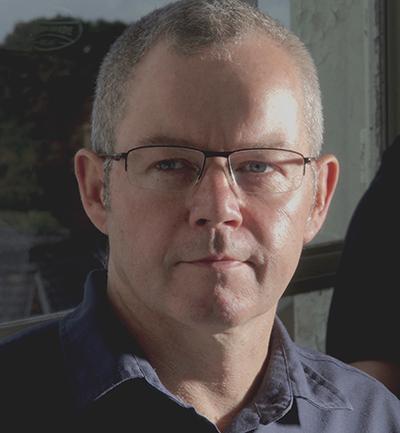

Tell us a little about yourself.
Since 2012 I have been part of the teaching staff on the Photography Degree course. For some years I balanced the demands of running my own printing business alongside teaching and this meant I could bring all my professional experience and expertise into the course to compliment the other staff members specialisms.
Wanting to share my professional understanding with new emerging talented students was my motivation for taking on the role. Choosing to study photography opens up possibilities for a very rich cultural and interesting life. It will take you to places you never expected, and you will meet amazing creatives along the way. This is what inspires me to continue to be an academic.
Let us know more about your industry/practice background.
For 20 years I worked in London in various roles in the photographic industry, so I bring lots of relevant knowledge into what it takes to make it and what is possible for an inspiring career in photography. Being freelance, being an assistant, a studio manager and then for a long time a producer and printer making work for some of the most important contemporary photographers of the day.
I ran the printing services at Rapid Eye for nearly 10 years where I became a master colour hand printer, making exhibition and book prints from colour negative film. The craft of making the perfect print, developing styles and keeping the highest technical standards for a wide range of clients gave me patience, determination, and a reputation of coming up with the goods as well as a unique skill set.
What research area do you specialise in?
My current research interests are focussed on the developmental changes and challenges facing a unique community on the Island of Eriskay, in the Outer Hebrides. I have been photographing regularly over the past two years making a contemporary study of the people, their connection to land and exploring common histories and stories. It is a documentary body of work I am really proud of and involves portraiture, landscape, still life and has an important social engaged aspect. It evolves slowly, and it cannot happen without the input and agreement of the community. You can explore more here: www.eriskayphotographicstudy.com
What modules do you teach and what is your favourite part of these?
I am privileged to teach across all the three years of the programme, and this gives an insight into just how much progress and development each student can make in that time. It's great to see the whole journey through to the preparations for the profession.
The practical workshops and the crits for me are some of the most enjoyable and engaged parts of each module. When we are problem solving in studio or darkroom, dealing with light and equipment and exploring image making it is clear that everyone brings something unique to these hands-on learning experiences and always produces something new.
Crits are so interesting and surprising, as each group discussion sees new potential and purpose in the images, which are often shown for the first time. Every voice and every idea can change and inform the direction of student’s photography and that is where we really excel at Cumbria, empowering students to have confidence in their photography.
What makes your course different?
Our campus is situated on the edge of the Lake District and is a great environment in which to study and make photography about important issues – a unique opportunity. We have industry standard facilities, with excellent access to resources and technical support, as well as a rare colour darkroom in which to experiment and fine tune your craft.
Our field trips where we book bunk barns for a few days helps our students make the most of the unique Cumbrian Landscape. Every year we have a Fellow in Photography and visiting professionals who bring their expertise directly into the classroom and you get a ‘behind the scenes’ insight into their working lives.
Just from this list you can see how well-rounded the course is!
What advice would you give to students considering studying on this course?
Choose Cumbria to study photography if you want to be encouraged and valued for being an individual. Our strength is to recognise, guide and nurture you as a unique voice that can make a difference and say something in a new way.
Make work about things you are interested in and have a passion about. This is what we would love to hear when you apply and so will employers further down the road. So, we will make sure you are ready for when that happens.
What’s your favourite thing about teaching at Cumbria?
Because of our tailored and practical approach to teaching, tutors are keenly involved in the development of student’s photographic journeys. I love seeing new work being made in front of our eyes and to be able to support students with great technical resources, facilities and professional outlook is a pleasure.
And, finally...
Can you tell us an interesting fact about yourself?
I have swum the English Channel. It took me over 16hrs after 3 years of training. It taught me the value of determination if you want to achieve anything worthwhile.
